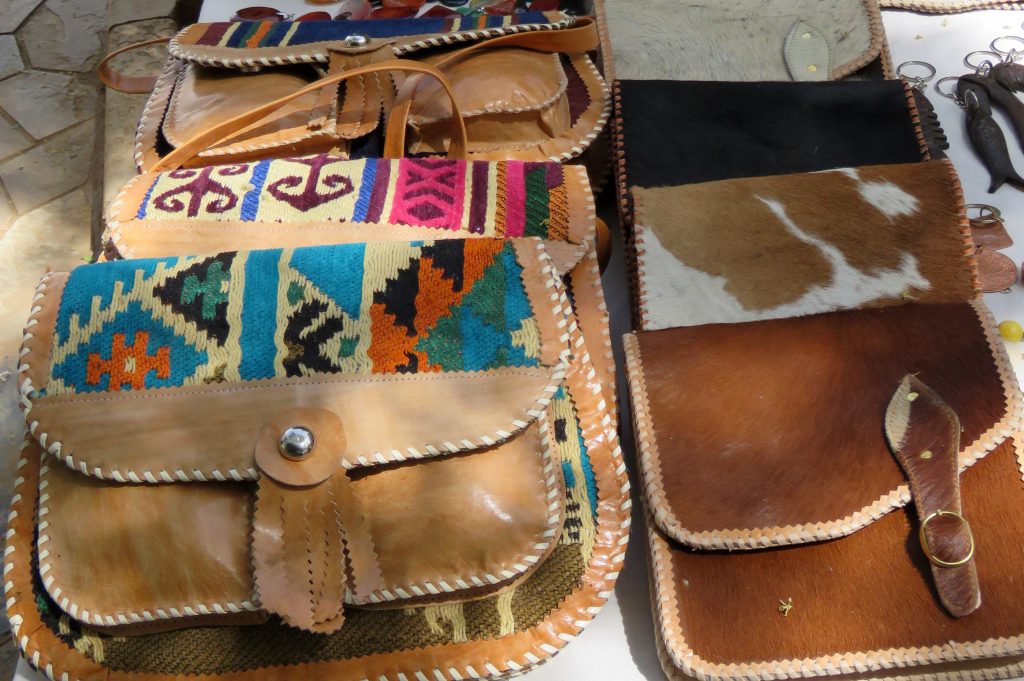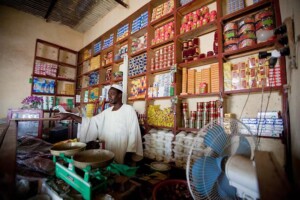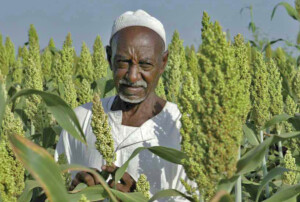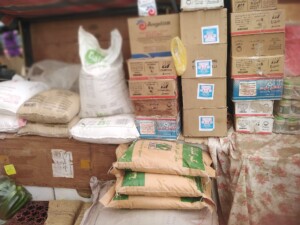Experts urge creation of ‘value chain’ for Sudan’s leather industry

Traditional Sudanese leatherware (File photo: Fareed El Khalefa / Khartoumstar.com)
Experts at the Nyala Trade and Investment Fair in the South Darfur capital have warned of the government’s neglect of Sudan’s leather industry. They urge the implementation of a value chain*, where goods are manufactured at the place where the leather is produced to ensure global competition. Currently, most Sudanese leather is exported as a raw material, while manufactured leather goods must then be imported.
At a symposium on the side lines of the Nyala Trade and Investment Fair, taking place January 6-12 for the eighth time in the capital of South Darfur, economists and academics discussed the challenges of the leather industry.
South Darfur counts more than 25 million head of livestock that are good for huge quantities of leather, which is exported as raw material to neighbouring countries.
Leather shoes and other items are manufactured abroad and then have to be imported again, in exchange for money, instead of manufacturing such items in the Sudanese regions where the leather is produced.
Speakers at the symposium called on universities, banks, and economic and political institutions to intervene and “concentrate on the development of the production industry, especially in the field of leather, in a way that preserves the rights of producers and contributes to the country’s economic cycle”.
The experts pointed out that most of the children of livestock breeders and farmers do not find opportunities for proper education, “which also explains the bloody conflicts between farmers and herders over resources instead of searching for a peaceful solution”.
‘Unfortunate timing’
A number of participants in the Nyala Trade Fair pointed to the low turnout.
They described the time chosen by the South Darfur government as “unfortunate” and said the fair should have been postponed following recent attacks by militant herders on more than 10 villages in Beleil, north-east of Nyala, where non-Arab Daju farmers live.
More than 16,000 people were displaced in the attacks.
The Daju tribe and Rizeigat herding tribe signed a reconciliation document but, according to Abdelbadi Abakar from the Emergency Room for Relief for the Beleil Victims, the agreement “aims to hide the real culprits and legalises new herders’ settlements”.
The investment fair was inaugurated on Friday by Acting Governor of South Darfur Hamed El Tijani in the presence of Deputy Governor of the Darfur Region Mohamed Eisa Aliyu and will run until January 12.
* Economic analysts have often cited the adherence to a ‘colonial-era business model’ in much of post-colonial Africa, in which raw materials are exported for processing elsewhere, as an impediment to economic growth, and urged for more investment in manufacturing to create employment and uplift economies by adding value to the raw materials on site.











 and then
and then